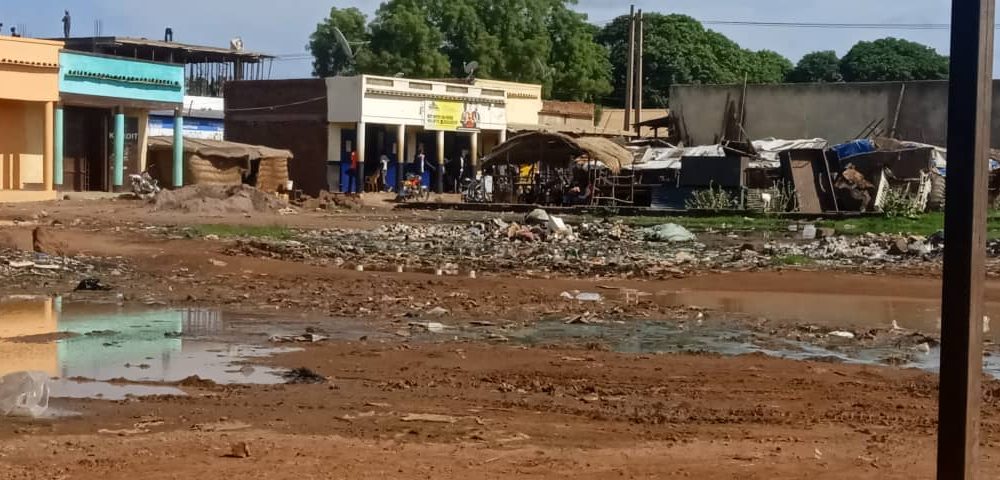By Ngor Deng
Residents of Aweil town suburbs in northern Bahar El Ghazel are complaining of what they describe as poor hygiene in public places such as markets and around health facilities.
A public health practitioner, Mrs. Arual Ayuel Kiir, who lives in Northern Bahr el Ghazal state, is among those who experience the dry environs.
Ayuel raises concerns about the most common effects of poor public hygiene, such as the transmission of contagious illnesses, environmental pollution, and diarrhea, among others.
She encourages maintaining public hygiene in community spaces like workplaces, schools, and transit sites for the well-being of people.
“If we don’t care about the cleanliness of our surroundings, then we are inviting sickness or illness in ourselves unknowingly,” he said.
“So we must clean our compounds daily. We must introduce a dump site where to dispose of the rubbish”.
The health practitioner stressed that “waste is harmful to our lives, and therefore public places such as public toilets, health facilities, and our homes are mandatory to be cleaned every time”.
Mrs. Ayuel further discourages dumping collected trash near the restaurants.
“Restaurants are not supposed to be near the places where they dump the waste; they are not supposed to be near the public toilets and others because they attract flies, and flies carry illness,” he argued.
“I am saying these as part of raising awareness,’’ Arual concluded.
Complaining about the poor hygiene in Aweil city, Mr. Moses Atem, a student in one of the secondary schools, challenges the municipal authorities for doing little to keep the town clean.
“If you pass around Kenya Commercial Bank, in front of the entrance, you feel that the city authority is not keeping up with its mandates. If you go to the market, it is like nobody takes care of the city,” Moses observed.
Another resident, Ajok Aguer Aguer, told this outlet that the vegetable market, where people sell local produce such as dry meat and fish, is very dirty.
“If you go where women sell local produce, along the road connecting the ministry of information and the Mudaria residential area, there too many plastic bags dumped,” she complained.
Ajok said the city is not clean, and there is nothing citizens can do.
Bol Garang Deng, a resident of Naivasha area, said that last year, a weekly general cleaning campaign within the city used to take place, and state governor Tong Akeen used to spearhead the general cleaning.
Garang said it was good to emulate Akeen who was doing the cleaning campaign exercise just to encourage people to make the city clean as a collective responsibility for every inhabitant.
“I believe our governor is so committed now with the many tasks he is overseeing, and so my blame goes to the town authorities,” he said “It is the role of the town authorities to hire workers to clean the city”.
According to Garang, the city authority should have developed a policy to keep the town clean.
“We are very sure that there are taxes collected on a daily basis in the local markets here; these taxes alone can clean the city if the town authorities indeed care about the public’s hygiene,” he noted.
In response, the Aweil town deputy Mayor for planning, Mr. Charles Malong Anyuon, expressed his readiness to keep the town clean.
“We have contracted a company called Yar Alich to collect waste in public places and residential areas,” he said.
“We encouraged businesspeople to assemble the waste or put it in one place, and this truck goes to the market on a daily basis to collect the waste”.
Anyuon added that they also informed the town residents in the suburbs to do the same.
However, the deputy municipal mayor also blamed the poor hygiene on the wet or rainy season, adding that many places waterlogged, and it becomes difficult to clean the places.




